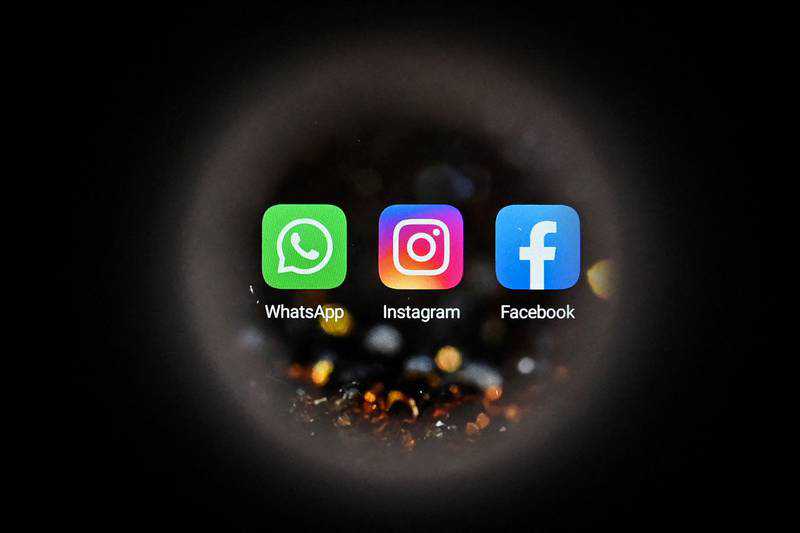WhatsApp users rush for alternatives during long service failure
06 October, 2021

For more than five hours on Monday, Felicia Rangel-Samponaro was working blindly, unable to communicate with the asylum seekers she helps along the US-Mexico border.
Ms Rangel-Samponaro, who runs the Sidewalk School for migrant children on the Mexican side of the frontier, relies heavily on WhatsApp as she spends her days shuffling between some of the most dangerous cities in Mexico, meeting teachers and asylum seekers.
But when Facebook's blackout began, she was unable to co-ordinate with staff and clients.
“I didn’t realise how dependent I was on WhatsApp to communicate with everyone in Mexico,” Ms Rangel-Samponaro told The National.
“I had no way to ask them to wait for me ... we essentially just showed up everywhere hoping people were available to meet us."
Ms Rangel-Samponaro said she had tried calling people and sending text messages, but “asylum seekers only use WhatsApp".
Experiences such as this have shone a light on the deep dependency millions of people around the globe have on WhatsApp, Facebook and Instagram to communicate, run businesses and provide services.
About 2 billion people around the world use WhatsApp.
More than 14,000 kilometres away in the Tanzanian bush, the Pams Foundation, an anti-poaching group, was in the middle of an intelligence-led operation when the failure occurred.
The organisation had to resort to traditional mobile networks and other encrypted messaging apps for those who already had them installed on their phones.
Shifting communications was a “challenge”, foundation president Krissie Clark said.
In Arusha, the safari capital of East Africa, a hotel owner told The National that he lost several clients yesterday when they were unable to reserve a room through WhatsApp and consequently booked elsewhere.
"I couldn't continue to chat anymore after WhatsApp went down," he said.
Messaging app Telegram gained more than 70 million new users during Monday's Facebook cut, its founder Pavel Durov said on Tuesday.
Facebook also experienced widespread failures with its apps in March and July this year and was down for almost an entire day in 2019.
EU antitrust chief Margrethe Vestager said the failure showed the repercussions of relying on a few big players and underscored the need for more rivals.
It coincided with revelations from a former employee who turned whistle-blower, who accused Facebook of repeatedly giving priority to profit over clamping down on hate speech and misinformation.
Frances Haugen, a Harvard University-educated data scientist who worked on Facebook’s civic integrity team, testified before a US subcommittee on Tuesday about how the social media organisation operates with no effective oversight.
“Facebook has not earned our right to just have blind trust in them,” Ms Haugen told the Senate panel.
She said the organisation would not change its ways without a “call to action from Congress".
Senator Richard Blumenthal, who chaired the hearing, said: “Facebook and Big Tech are facing a Big Tobacco moment, a moment of reckoning.”
On Twitter, Congresswoman Alexandria Ocasio-Cortez said it was time to “break them up".
While Facebook was down on Monday, the internet was not.
Andrew Sullivan, chief executive of the Internet Society, a non-profit devoted to keeping the internet a place for good, said that despite Facebook’s problems, “the rest of the internet went on its merry way yesterday, because it's designed for that kind of resiliency".
Mr Sullivan said the strongest version of the internet was one with many different systems on it.
Facebook said Ms Haugen had worked at the company for less than two years and had not been privy to executive decision making.
"We don't agree with her characterisation of the many issues she testified about," the company said. "Despite all this, we agree on one thing: it's time to begin to create standard rules for the internet.
"It's been 25 years since the rules for the internet have been updated, and instead of expecting the industry to make societal decisions that belong to the legislators, it is time for Congress to act."
Source: www.thenationalnews.com
